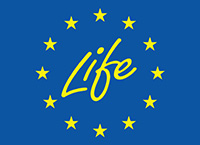CAP “simplification”: Missed opportunity fails to answer farmers’ demands
Following farmers’ protests, the European Commission proposed a Common Agricultural Policy (CAP) reform which has now been approved in votes in the European Parliament’s Plenary on 24 April 2024 and the Council on 13 May. With the reform approved, its measures will apply to environmental claims as of 2024.
As European organic movement, we believe this proposal will not address the crucial issues of unfair pricing and decent incomes for which farmers have been protesting for months. The proposal fails to address the systemic cause of farmers’ anger: imbalances in the agri-food supply chain. The only outcome of this vote will be significantly lower environmental delivery of the CAP, without providing more incentives for farmers to engage in sustainability initiatives.
We believe the CAP should:
- Put environmental delivery of farms as a priority by incentivising and supporting farmers who want to re-design their farms, making them more resilient in case of crises and deliver more for the environment; and
- Address the crucial issues of prices and income, notably by improving the farmers’ position in the food chain.
Interested to learn more? Read on:
- Press release: Vote on CAP simplification, a missed opportunity for farmers & citizens
- Commission proposal for a regulation of the European Parliament and of the Council amending various regulations related to the CAP
- European organic movement’s work on the Common Agricultural Policy
- Organic agriculture and its benefits for climate and biodiversity – Report and visualised
- Or contact [email protected].
While the current CAP (discussed in this article) only entered into force in 2023, discussions for the CAP post 2027 are in full swing in the European institutions. Our Interest Group of Organic Farmers (IGOF) launched its subgroup on the post-2027 Common Agricultural Policy (CAP).
IFOAM Organics Europe members can find more information on the member extranet and background materials in the arguments database on the member extranet (main messages, arguments/FAQs, visuals & videos). Contact [email protected] for access rights (issues).
For information about what you can gain from being a member, read our membership page and contact [email protected].

The work of IFOAM Organics Europe on this topic is co-financed by the LIFE programme of the European Union, under the Climate, Infrastructure and Environment Executive Agency (CINEA). This page only reflects the views of the authors and its sole responsibility lies with IFOAM Organics Europe. The CINEA is not responsible for any use that may be made of the information provided.

